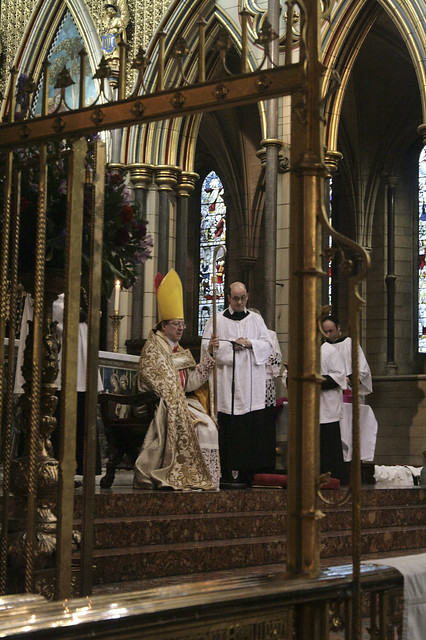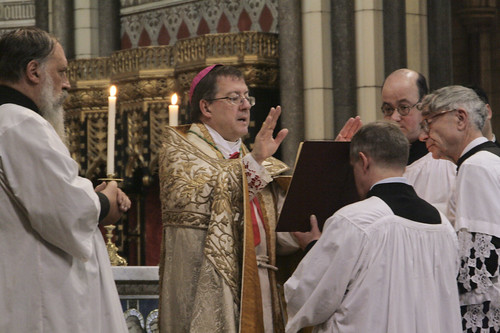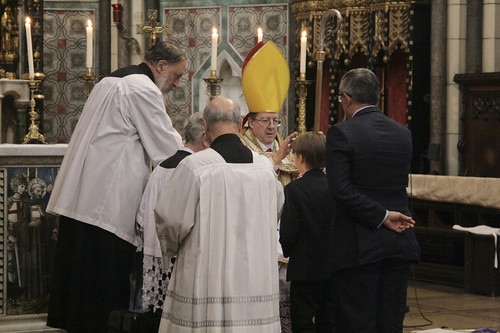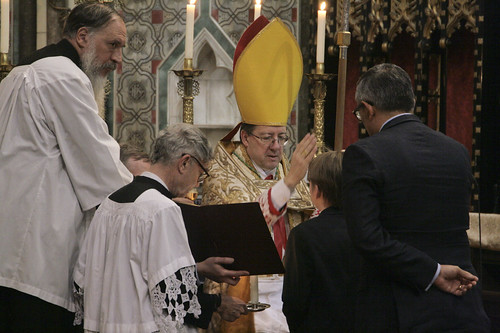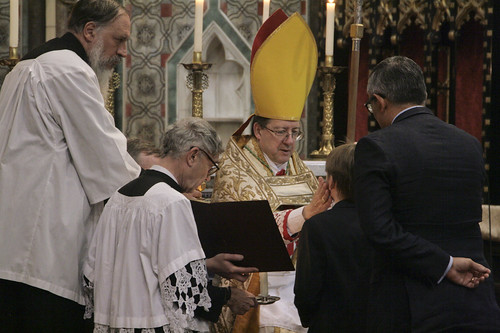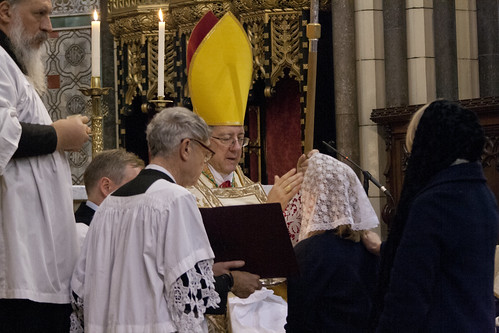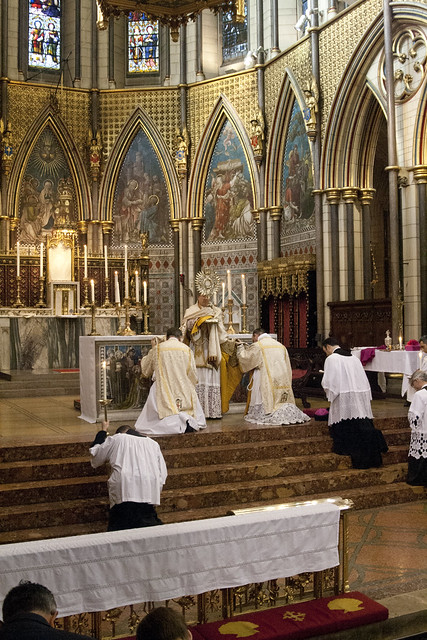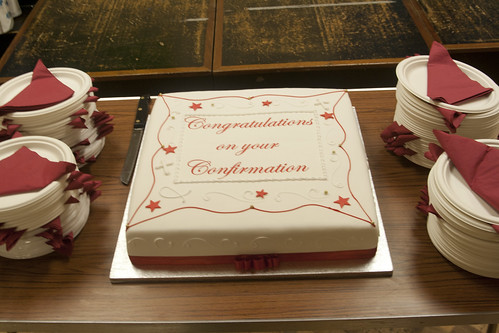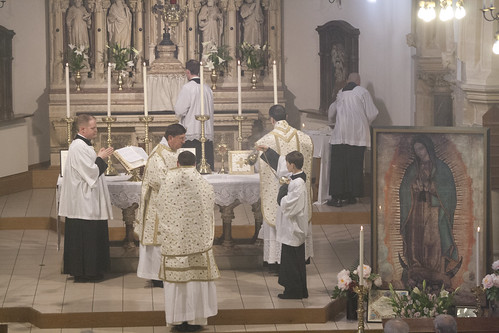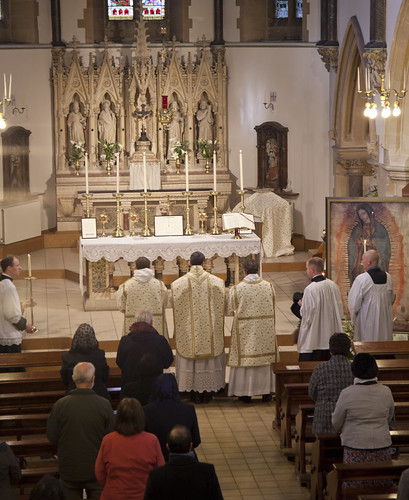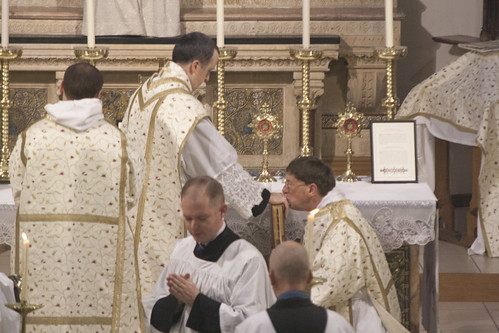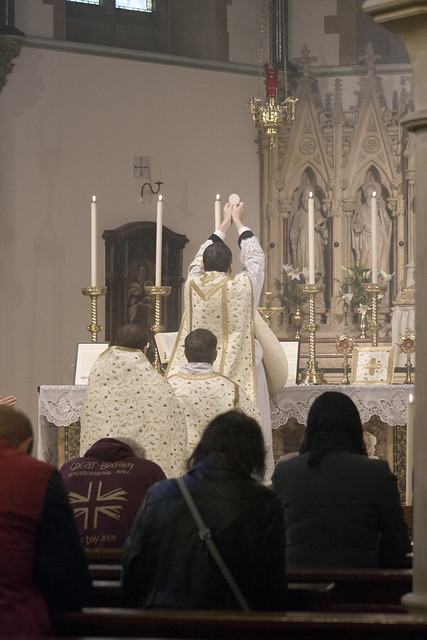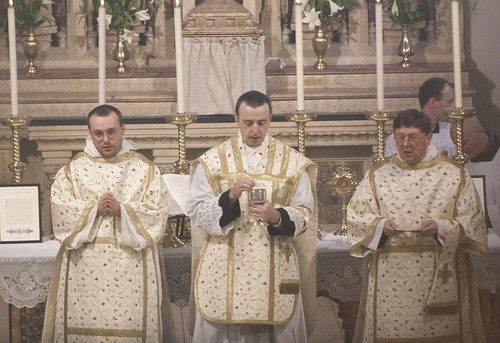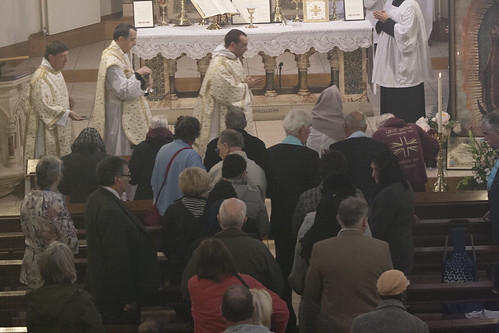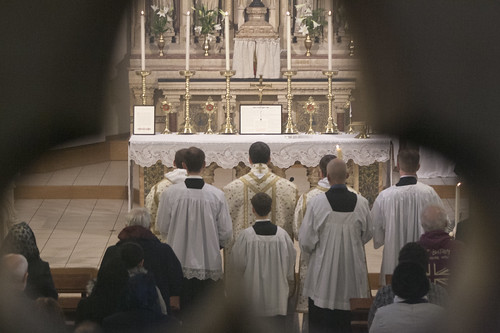Chairman's Blog
Clericalism and abuse
My latest on LifeSite News.
A key passage:
Catholic Bishops are afraid of investigations
My latest on LifeSite News.
A taster:
In some cases, decision-makers were personally involved in wrongdoing. In other cases, it is sometimes suggested, they were being black-mailed, explicitly or implicitly. I would suggest, however, that this is another motive, which would apply even to those who had little to fear personally: simply that a real house-cleaning exercise would implicate so many people, in such seriously bad things, that the overall effect on the Church’s standing, and even its ability to function, would be catastrophic.
Read it all here.
LMS Confirmations 2018: Photos
Every year the Latin Mass Society organises confirmations in the Extraordinary Form in St James', Spanish Place, in London. They are usually conferred by an auxiliary bishop of the Archdiocese of Westminster. This year, for the third time, it was Bishop John Sherrington.
Each candidate is annointed, given the sacramental formula, and then the ritual blow on the cheek. Bishop Sherington spoke movingly about the symbolism of this blow, as showing that the confirmand must be willing to die for the Faith.
The confirmations were followed by Pontifical Benediction.
And cake, of course!
A Catholic culture? We need a culture
Me on LifeSite News. A key passage.
Should Catholics be free-speech absolutists?
Me on LifeSite News: a key section.
Since people on the “progressive” side of the debate generally need not fear exclusion from social media and public spaces, they usually do not need to make such appeals, so this appeal to free speech is becoming increasingly associated only with the defense of conservative voices. We now hear from liberals that the principle of free speech is being “weaponized,” a rhetorical preparation for saying that the principle should be rejected, as the latest Google memo comes close to doing.
This is quite a turn-around from the depiction of the Catholic Church as the opponent of liberty, and the historic attempts to undermine the Church’s institutions and influence by scurrilous pamphleteering: characteristic tactics of the Church’s opponents since the time of Luther. In response to this kind of activity, Popes down the ages remind us that freedom of expression is not an absolute right. Typical was Pope Pius IX, who had the Papal States to administer as well as the Universal Church, and who wrote in 1864 (Quanta cura) of “that erroneous opinion”
that a right resides in the citizens to an absolute liberty, which should be restrained by no authority whether ecclesiastical or civil, whereby they may be able openly and publicly to manifest and declare any of their ideas whatever, either by word of mouth, by the press, or in any other way.
Read it all there.
Honouring our war dead
Me on LifeSite News. A key paragraph:
There are inevitably those who are uncomfortable with the commemoration of the war dead, the commonest complaint being that it ‘glorifies war’. This seems a curious reaction to the ritualized expression of public grief, but it contains this grain of truth: the laying of wreaths and the parading of soldiers does not merely remember the dead: it honors them. If one takes the view that all war is evil, then this is no more appropriate than publicly honoring a roll-call of mass-murderers.
Catholics funerals must beseech God's mercy
Me on LifeSite News: a sample paragraph.
But the meaning of the words is only one aspect of the listener’s experience of these chants. Gregorian Chant is remarkable for expressing emotion without manipulating the hearer: it doesn’t twang on the heartstrings with euphoric or lacrimose cords, but expresses joy and sorrow in a way at once authentic, dignified, and restrained. Equally striking, with the chants for the dead, is their powerfully insistent tone, especially evident in the Dies irae. There is no need to speak at length about despair, but there is need to spend time begging God’s mercy, because God is pleased to grant it at our insistence, if we insist with a confidence that does not tip over into presumption.
LMS Bedford Pilgrimage: photos
St Joseph's is a fine church which has survived the liturgical reform pretty well. The LMS' Mass was well-attended, with 86 (I am told) present. There is a regular Sunday EF Mass celebrated in the next parish, Christ the King, served by the FSSP. The regular celebrant of that Mass, Fr Patrick O'Donohue FSSP, was the celebrant of this High Mass.
He was assisted by Fr Michael Cullina as deacon and Br Albert Robertson OP from Oxford as subdeacon. Servers came from a wide area; a small chant schola was led by Matthew Schellhorn.
This being the first Mass of its kind we faced a number of practical obstacles, but it all came together and I hope the Pilgrimage in honour of Our Lady of Guadalupe will be a regular fixture in future years.
Many thanks to the indefatigable local LMS Representative, Barbara Kay, the Parish Priest who welcomed us, Canon Seamus Keenan, and the shrine 'Guardians' who looked after us.
Support the Latin Mass Society
Newman Colloquium: with Fr Jeremy Davies, Exorcist
As last time, 3:45pm in the parish hall at SS Gregory & Augustine's in Oxford.
The booking page is here.
Witchcraft and the Occult
My latest at LifeSite News begins as follow:
Following the confirmation of Brett Kavanaugh as a Supreme Court judge, an occult book shop in New York hosted his mass-“hexing”: people identifying as witches gathered to curse him. They had earlier done the same thing to President Trump. Reading such stories in reputable news sources like the BBC brings to mind G.K. Chesterton’s remark:
When men choose not to believe in God, they do not thereafter believe in nothing, they then become capable of believing in anything.
As LifeSiteNews has reported, however, self-described witchcraft has grown to the level which is no longer simply a joke. It is important to keep three points in mind about it. First, the claims of today’s occultists and witches to some historical continuity with European paganism are completely deluded. Secondly, it is nevertheless spiritually dangerous. Thirdly, Catholicism is the form of religion it most detests, and also the form which can most help its adherents.

